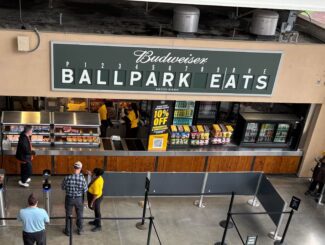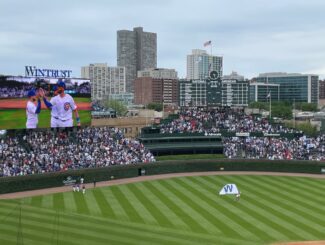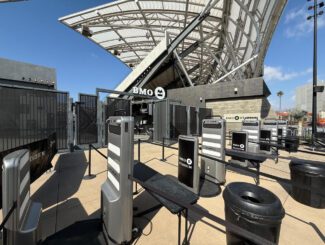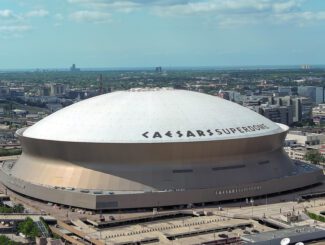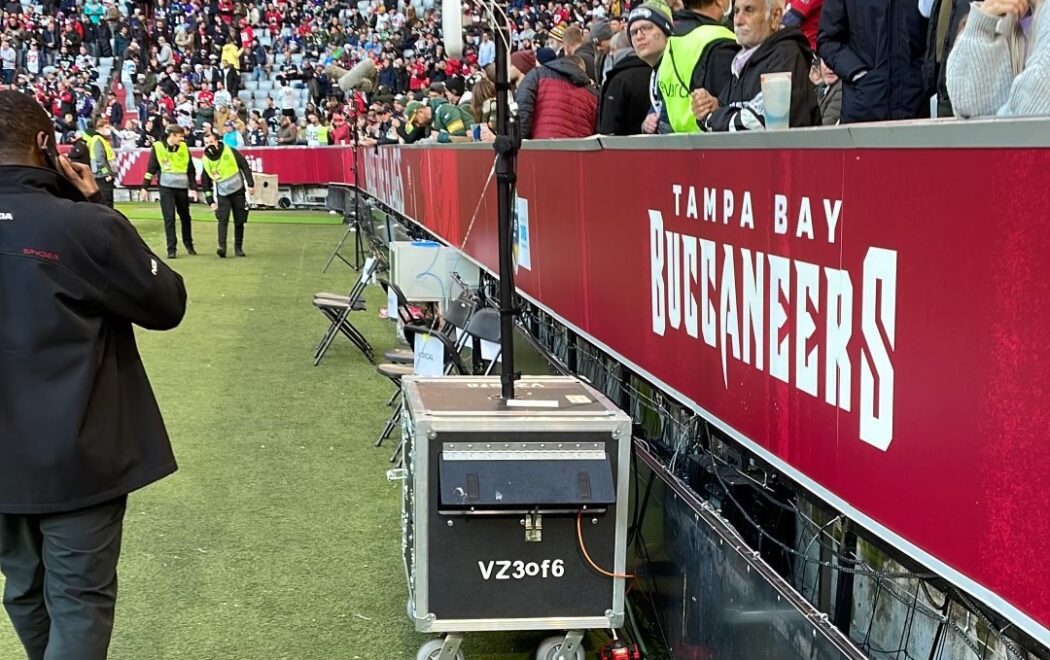
Verizon and the NFL announced a 5-year partnership under which Verizon will build private CBRS-based networks for all of the NFL’s 30 stadiums, initially to support on-field communications but with the ability to host other security- and bandwidth-sensitive back-of-house applications as well.
According to Verizon, the all-important coach-to-coach game-day headset communications will run off the new networks, starting with games during the 2023 NFL regular season. In a phone interview with Brian Mecum, vice president of device technology for Verizon, Mecum said the private networks could also eventually be used for other applications that might benefit from the inherent security of the private infrastructure, including in-house video transport or financial-transaction uses, among others.
“It will be up to the individual franchises as to what might be done in the future,” Mecum said. “It’s pretty exciting.”
Since the FCC opened up the CBRS spectrum a few years ago, stadiums have been seen as a prime potential market for the services. But so far only a few specific use cases have been publicly announced, with rollouts no doubt slowed a bit as the infrastructure and device market for CBRS was maturing. But the high-profile deal between Verizon and the NFL (which will be promoted in a national TV advertising spot following Sunday’s Super Bowl) could kick the market into a higher gear, as other sports, stadiums and service providers follow Verizon and the NFL’s lead.
More than just voice
One of the worst-kept stadium-tech industry secrets over the past couple years is that the NFL has already been using a CBRS-based solution for sideline communications, a voice-only operation. Mecum said Verizon was not involved in that deployment, something the league and individual stadiums would not talk publicly about even though the CBRS gear was visible to anyone walking on an NFL sideline (if you knew what you were looking for and where to look).
Verizon’s implementation, which Mecum said will be able to support all kinds of data as well as voice, was tested during the past year at the NFL’s international games, including at stadiums in the U.K., Germany and Mexico. According to Mecum, each stadium will basically have its own full core network with back-end gear, as well as antennas and end-user devices. Depending upon the stadium’s existing infrastructure, Mecum said the CBRS network gear will either consist of racks rolled in to an existing data room, or a separate room for the network equipment needed. Mecum said the networks will use CBRS spectrum that Verizon has paid licenses for.
Like other U.S.-based CBRS offerings, Verizon will also use the necessary CBRS clearinghouse services to ensure the CBRS spectrum it is using is available. Mecum did not say which provider’s services Verizon and the NFL would use. The CBRS gear used in the deployments, Mecum said, will come from Nokia. The CBRS voice network that was in place in NFL stadiums the past 2 years reportedly used JMA equipment.
(If you are new to the shared-spectrum game, the 150 MHz of CBRS spectrum at the 3.6 GHz range is a unique set of airwaves that is notable for supporting both licensed and unlicensed use cases. If you need a primer I highly suggest the CBRS report we did a couple years ago about how CBRS can support venues.)
Getting the plays in
While the new CBRS networks won’t be able to solve the problem of network-TV lip readers (which forces coaches to cover their mouths on the sidelines as they call in plays), the actual conversations between coaches in the press box areas, on the sidelines, and the players with radios in their helmets should be faster and more secure on the new private infrastructure.
In a funny video that Verizon plans to share on its social networks, Mecum and Aaron Amendolia, the NFL’s deputy CIO, share simulated coaching conversations at a pace they both agree is far slower than the actual performances by teams on NFL Sundays.
“It’s a pretty exciting, intense bunch on the sidelines, and they need a network that can keep up with them,” Mecum said.
Stay tuned as Stadium Tech Report follows the NFL-Verizon CBRS deal throughout the offseason!



